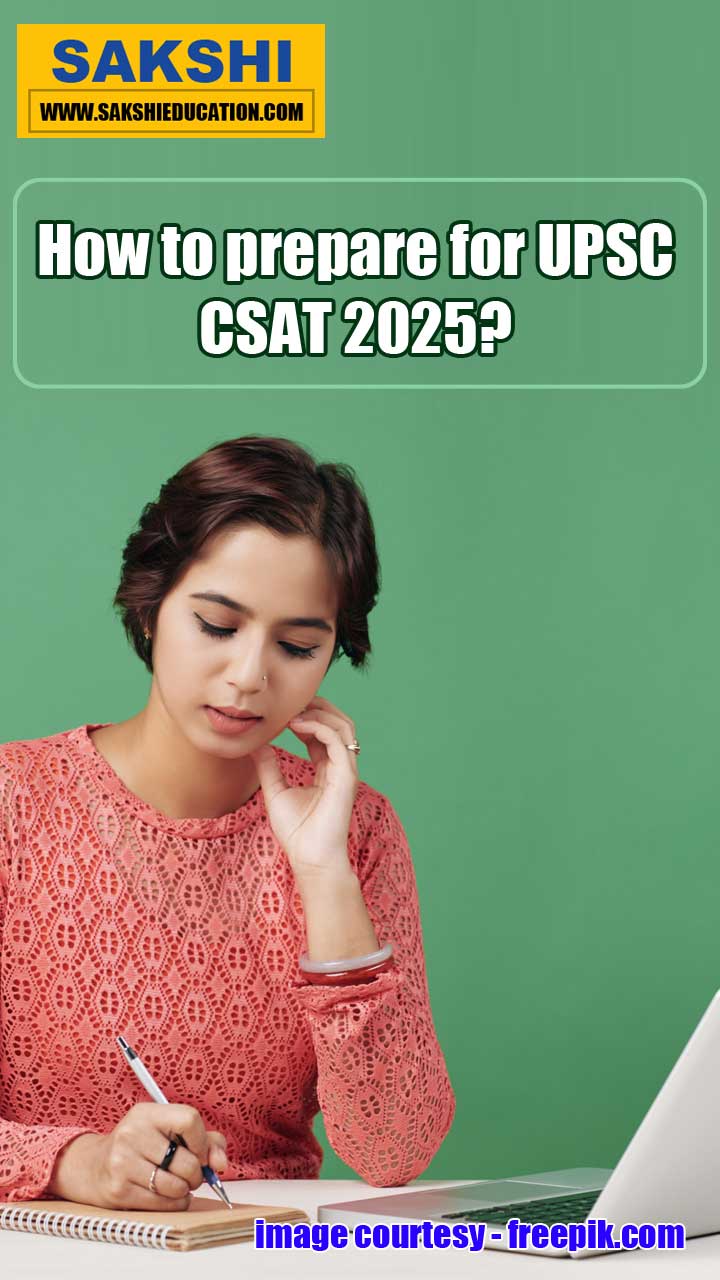Social Movements in Our Times
Sakshi Education

Chapter-21
Social Movements in Our Times
Social Movements in Our Times
Key Points:
- American Civil Rights Movement fought for the equal treatment of Afro-Americans. The yearlong boycott of buses by blacks in Montgomery led by Dr. Martin Luther King on 28th August 1963, more than two lakh people marched to Washington demanding the passage of Civil Rights Act.
- In countries like Hungary, Czechoslovakia and Poland movement took the form of demand for freedom from the control of the USSR. Alexander Solzhenitsyn, the famous writer, and Anderi Sakharov, a nuclear scientist, were important leader of this movement.
- In Vietnam conflict, lakhs of Vietnamese military and civilians were killed, apart from a large number of Cambodians and Laotians. The Vietnamese used guerilla warfare techniques to fight the might of USA. This eventually forced the US government to end the war and leave Vietnam in 1975.
- A Treaty was signed in 1991 which is called START. It was the largest and the most complex arms control treaty in history. In late 2001, it resulted in the removal of about 80 percent of all strategic nuclear weapons from existence.
- World wide economic and political changes since 1990s, which go by the name of Globalization have deeply impacted to lives of the underprivileged and poor.
- During the last few decades tribal and marginal farmers are also being threatened by commercial farmers, mining corporations and dam-projects. The Narmada Bachavo Andolan (NBA) movement combines in itself many strands like the movement of indigenous people, movement against neo-liberal policies, struggle of farmers to hold on to their land as attempts are being made to take them over for dams, urbanization, industries, mines and forests.
- The anti-arrack movement of Andhra Pradesh and the movement of Manipuri women against special powers of armed forces, which has been misused against people of the North Eastern states, are examples women’s power. Irom Sharmila has been on hunger strike for more than 10 years and is under house arrest.
- Civil Rights: Rights guaranteed by law.
- Civil Disobedience: The refusal to obey laws, pay taxes, non-violent opposition to law or government policy by refusing to comply with it.
- Segregation: Practice of compelling different racial groups to live apart from each other.
- Destabilise: Make unstable
- Antiwar: Against the war
- Draft Age: Send people somewhere for a special task
- Weaponisation: Deploying of weapons
- Rehabitation: To help some to have a normal life again
- Compensation: Pay something to lessen the bad affect
- Anti-arrack Movement: A social movement built by women in AP against arrack.
- Democratic: Rule by the people or government through elected representatives.
- Participatory: Become involving in an activity.
ESSAY ANSWER QUESTIONS
- Here are list of items that you can use to make a table on social movements. Draw a table based on them and find out similarities and differences amongst movements. Main area of focus of the movement, location main demands mode of protest, important leader, response from the state possible impact on society.
A.MovementLocationMain DemandsMode of ProtestLeadersResponseImpact on SocietyCivil Rights MovementUSAPassage of Civil Rights ActMarches DemonstrativesDr. Martin Luther King Jr.Pass of Civil Rights BillMany laws well implementedAnti-apartheid MovementSouth AfricaAbolition of racial discriminationNon-violence DisobedienceNelson MandelaEnd of apartheidEqual rightsAnti-colonial movementsAfrica, Asia and Latin AmericaFreedomNon-violence SatyagrahasM.K. Gandhi, Simon BolivarGrated freedomSelf-ruleHuman Rights MovementsEurope USANo slaveryPrayer, petition protestJohn Locke, Francis HutchesonFreedom from slaveryHappy, enlightened citizensArab SpringArab worldDemocracy, free elections and human rightsCivil disobedience DemonstrationsArab PeopleFree electionsChange in society Change is powerSocial justiceManipur (India)Repeal of the Armed Forces Special Protection ActDemonstrations Hunger strikeIrom SharmilaSupreme Court Judge was appointed by the government to probe into the issue.No concrete result yet
- What are the basic features of social movements?
A.- Social movements have raised diverse demands pertaining to environment, human rights and equality.
- These are a powerful means for ordinary people to participate directly in creating positive social change.
- These are deeply rooted in values of justice and democracy and many a time secure public support.
- These movements expand thanks to people’s participation in a democratic manner.
- These movements arise when people feel that their expectations were not met by the political class.
- Social movements must be non-violent. The participants play four different roles i.e., as citizens, rebels, social change agents and reformers.
- Social movements have raised diverse demands pertaining to environment, human rights and equality.
- How is the role of ordinary individuals described in the aforestated case studies?
A.- With the participation of ordinary individuals any social movement can be a successful one. People voice their concerns through their leaders. They actively participate in processions planned by the organisers.
- Right to freedom and freedom of press play an important role in democracy. For the protection of human rights and detection of violation of rights, freedom of press is required.
- For the protection of human rights, we require an informed, empowered and politicised population.
- Every individual desired to lead a dignified life. Political power always rests with the ordinary people. Absence of democratic methods to solve the political and economical problems leads to social movements.
- Social media play a vital role of mobilisation of people towards movements.
- With the participation of ordinary individuals any social movement can be a successful one. People voice their concerns through their leaders. They actively participate in processions planned by the organisers.
- How are the rights of black people in USA and Meira Paibi movements similar or different?
A.- The rights of black people in USA were violated by law. They are treated inhumanly by the white. They were discriminated in schools, transport facilities and employment opportunities. Black people fought this racial segregation.
- Meira Paibi struggle in Manipur was for safety and wellbeing of their community. They have shifted their focus from anti-alcoholism to human rights. Women played a major role in this movement.
- Black people in USA fought for civil rights. They demanded for right to vote under the leadership of Martin Luther King. Their struggle is famously known as civil rights movement.
- Meria Poibi led boycott of elections and used relay hunger strikes as means to fought for their rights. Irom Sharmila has been on hunger strike for more than 10 years. Government has yet to take a decision on Meria Paibi demands.
- The rights of black people in USA were violated by law. They are treated inhumanly by the white. They were discriminated in schools, transport facilities and employment opportunities. Black people fought this racial segregation.
- Democracies have been identified as most prominent political systems across world. Do you think it has been able to take care of all expectations of people? Based on the examples cited in this chapter, write a short note on democracy and social movements?
A.- When the ruling democratic governments failed to fulfill the aspirations of people, some sections of people who are denied human rights would start agitations, which can eventually become social movements. Social movements are mostly the outcome of dissatisfaction in the society.
- When there is an absence of social justice and threat to environmental system, the social movements emerge.
- Even though Democracy is the best form of government, the discrimination is different forms still persist in many of the countries across the world. The lack of real spirit of Democracy is the raison d'etre for the various social problems.
- When the governments protect the interests of a few privileged and concern for the welfare of majority of the people is absent, this situation leads creation of social movements. Participatory democracy, which involves as many people as possible, is the more desirable system to be established.
- Democracy even though the best form of government, the people must be vigilant and enlightened to get it implemented successfully. Social movements promote participatory democracy and people’s power.
- When the ruling democratic governments failed to fulfill the aspirations of people, some sections of people who are denied human rights would start agitations, which can eventually become social movements. Social movements are mostly the outcome of dissatisfaction in the society.
SHORT ANSWER QUESTIONS
- Kannayya, Ramya and Salma have a debate. They have different expectations whom would you agree with and given reasons from the context of human rights? Ramya argues it is okay to restrict the freedom of the press etc., but ensure people do not live in poverty. Salma argues it is food alone is not important but equally important to have freedom of press because these is no other way people would know if there is violation of dignity of people in different parts of the country. Kanayya says how will it make a different it press belongs to the rich and powerful people, why would they cover things ordinary people expect?
A.- The food alone not enough and we need the freedom of press too. Everyone has the right to life and liberty. No one shall be subjected to inhuman treatment and without freedom social life cannot be meaningful.
- Every country should give importance to the welfare of people, who wish to lead a dignified and respectable life.
- I agree with the aspects raised by Ramya and Salma and I don’t think they should be pit against each other.
- I prefer to disagree with Kanayya as freedom of press itself has a latent value.
- The food alone not enough and we need the freedom of press too. Everyone has the right to life and liberty. No one shall be subjected to inhuman treatment and without freedom social life cannot be meaningful.
- Discuss and find out how movements mobilise people from across the globe like in the above instance of campaign to protest in the context of Bhopal gas tragedy.
A.- The Bhopal gas tragedy occurred on December 3rd 1984. The environmental activists protested against this tragedy and its creator Union Carbide. The environment movements have been mobilising people from across the globe to protest various environmental problems that are man-made.
- These movements are highlighting the plight of the common people by using various media platforms such as newspapers, TV’s and internets.
- The Bhopal gas tragedy occurred on December 3rd 1984. The environmental activists protested against this tragedy and its creator Union Carbide. The environment movements have been mobilising people from across the globe to protest various environmental problems that are man-made.
Published date : 24 Dec 2014 12:06PM

















